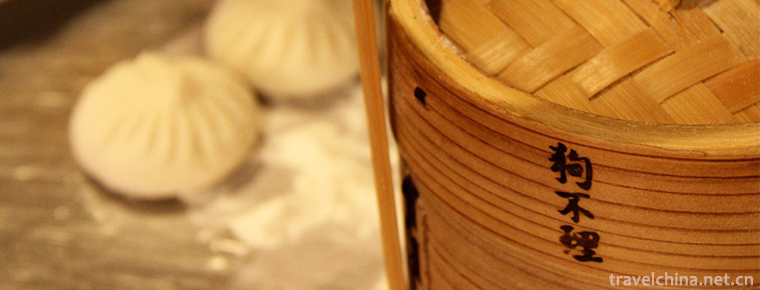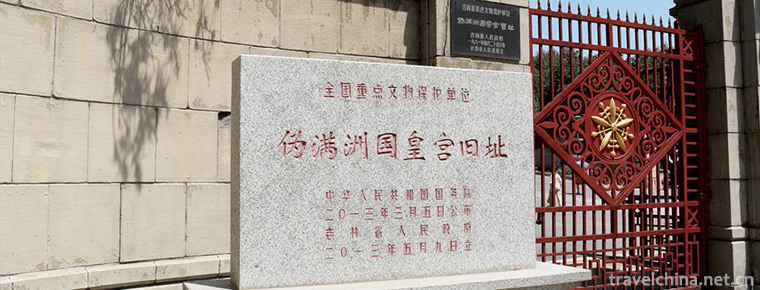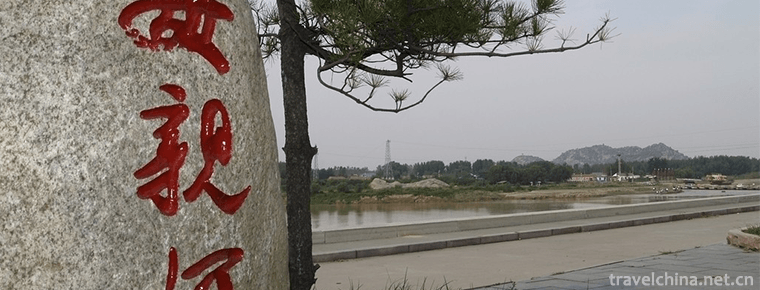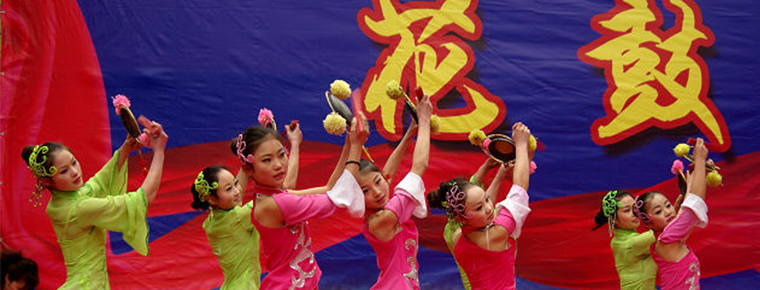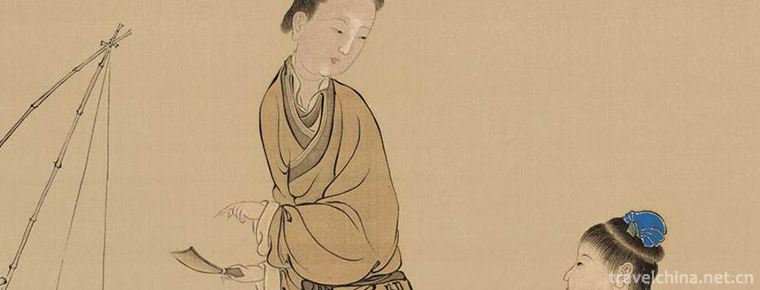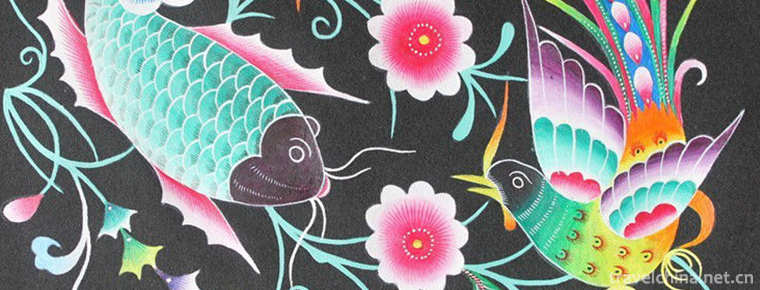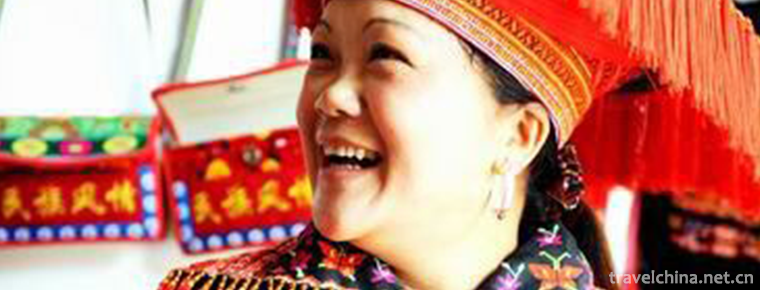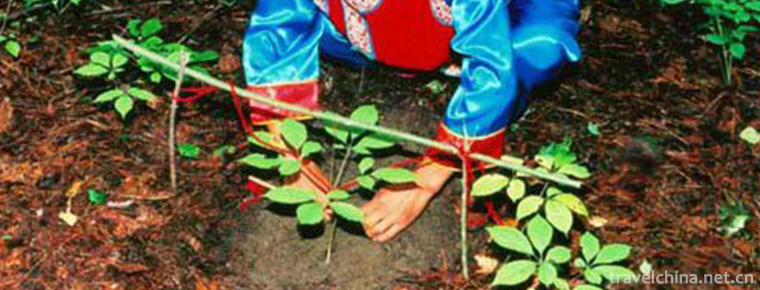Naxi Remei Biao
Naxi Remei Biao
"Remei Biao" is also known as "Wo Yo Ye", which is a collective folk custom that has been spreading for thousands of years. There are more than ten people at least and hundreds of people. The dancers circle hand in hand, step in a clockwise direction and sing while dancing. The male voice "Wo Hot" is emitted. The female voice "Hey Hey Hey" is accompanied by a tremor corresponding to each other. The lyrics can sing the life of the deceased and the ancient elegy as well as the Naxi language. Extensive, heavy and powerful, big melody movement is relatively simple. Singing and dancing are integrated, without accompaniment of musical instruments, and the multi-voice parts are both rigid and soft. It is mainly handed down through oral transmission and heart-to-heart transmission.
On June 7, 2008, Naxi Remeibao was listed in the second batch of national intangible cultural heritage list with the approval of the State Council.
Historical Evolution
There are three legends about the origin of "hot beauty".
First, the primitive dance says: because its dance steps imitate the walking of beasts and hunters chasing beasts, it reproduces the hunting scene of ancestors; second, the exorcism says: the legendary devil "hot" from flying demons eats only the tears and corpses of the dead, and the soul of the dead who have been eaten by "hot" never returns to the place where their ancestors lived. Therefore, after death, people dance "hot beauty". Drive out the "hot" ghosts;
Three: Seeking sheep said: In ancient times, a young shepherd lost a lamb and was hanged by his master. His companions helped him to find it overnight. The man scared the beast away with the shout, while the female sheep called back the lamb and saved the shepherd.
Up to now, the "hot beauty" is mainly based on the "ghost exorcism theory", which combines three kinds of legends in form and content.
Stylistic features
Dance began. Artists dressed in Naxi national costume of "wearing stars and wearing moons" formed a circle. An artist went to the middle and played flute to accompany everyone. As a matter of fact, there is no need for musical instruments to accompany Hot Beauty. This artist has added a new element to Hot Beauty uniquely. In a male sonar recitation that did not understand the lyrics, everyone began to spin the kick and step song clockwise. The male voice cried out like a curse, while the female voice interposed between the second sentence of the male voice, imitating the sheep's call. "Hot heat", "Hey hey hey" and "Ali Li" in the male voice. According to reports, the Naxi recitation and lyrics can sing the life of the deceased, as well as the ancient elegy. The multiple voices of the song are both rigid and soft. The pleasant tremolo comes from the chest. It's like a flock of sheep whispering. It's long and magnetic. It's very pleasant to hear. Hot and beautiful dance steps are somewhat like the action of bending down the front legs when sheep fight. They adopt clockwise circular dance, retaining the original form of dance steps.
Current situation of inheritance
Yunnan has always been called "the sea of singing and dancing". Yunnan has collected more than 20,000 folk songs and songs, more than 6,000 sets of dances, more than 200 kinds of instrumental music and more than 300 kinds of national musical instruments. It is the province with the largest number of national musical instruments in China.
In Jiantang Town, Shangri-la County, Diqing Tibetan Autonomous Prefecture, Yang Qingke, the local singer. In the hearth, the pine was burning, and the 75-year-old old singer Wang said with a joke: "At 14 years old, he followed his grandfather to learn Guozhuang. When he was young, he competed with other villages to sing songs. He could sing and dancing from the road to his home without repeating them. Three days and three nights were not eye-catching. "This feat earned Yang Qingke the reputation of King of Songs.
In order to transmit and contract folk dances of all nationalities, including Guozhuang Dance, VCD teaching discs such as Happy Shambala have been published, and square dance has been popularized to 12 villages and towns in 3 counties of the whole prefecture, with the popularization rate reaching 85%.
In the Naxi area, there is also a kind of primitive dance music which originated in the clan society period - "hot and beautiful". Xuan Ke, a famous Naxi scholar, has made a deep study and found that hot beauty originated from the fear of nature of the ancestors: "hot beauty" is a kind of spirit, which sucks the soul of the deceased. In order to protect the dead, people sing and dance while watching the spirit, in order to frighten and drive away the "hot beauty". So far, Remeijiao is well preserved in Dadong Township, the ancient city of Lijiang City. In early 1990, Dadongxiang set up the Remeihuang Art Troupe and the Dadongxiang Remeihuang Association to guide non-governmental organizations to cultivate a new generation of heirs to the Remeihuang Art Troupe.
If Remei is the milk of Naxi people's singing and dancing, then Zhangha is the salt in Dai people's life: life without Zhangha is as boring as that without salt in food. Zhang Ha refers not only to "singer", but also to the traditional form of Dai folk songs. Dao Yabin, Minister of Propaganda Department of Mengla County Committee of Xishuangbanna, said that during the Water Sprinkling Festival, the large-scale song and dance performance of Mengla County, in which she served as general consultant, "Song of Nanla", was designed with Zhangha tune as the main melody.
With the death of the older generation Zhang Ha, the Dai folk custom of listening to Zhang Ha has been far worse than before. For this reason, Xishuangbanna has compiled the first Dai edition of Zhang Ha Learning and Singing Manual, which provides intensive training for Zhang Ha artists. Since 2008, the Yunnan provincial government has given inheritance funds of 3000 yuan per capita to non-hereditary heirs at the provincial level. Some Zhang Ha was moved to tears when he received the money: "Thank you for your concern for our folk artists. They sent us subsidies, which enabled us to enjoy happiness that our ancestors never dreamed of." "
Inheritance Significance
The "hot beauty" of the Naxi people still exists in the funeral ceremonies of Dadong, Ming Yin, Dawu, Baoshan and other Naxi areas in Lijiang and the Naxi villages along the Jinsha River in Ninglang. "Hot Beauty" is a kind of song and dance that can hardly be recorded by any music score but is imparted by heart and soul from generation to generation. It is known as the "living music fossil" and has important value for the study of primitive music and dance.
"Remei Biao", also known as "Wo Yo Yo", is a primitive dance music produced in the clan society period, which is widely popular among the Naxi people and recorded in the Naxi Dongba scriptures. Its music material comes directly from nature. Music and dance are combined without accompaniment, scales and rules of sound sequence. Men's voice is led by "Zuo Luoba" and women's voice is led by "Gellermei". The discordant intervals with primitive artistic aesthetics are formed by the combination of rigidity and softness between multiple voices.

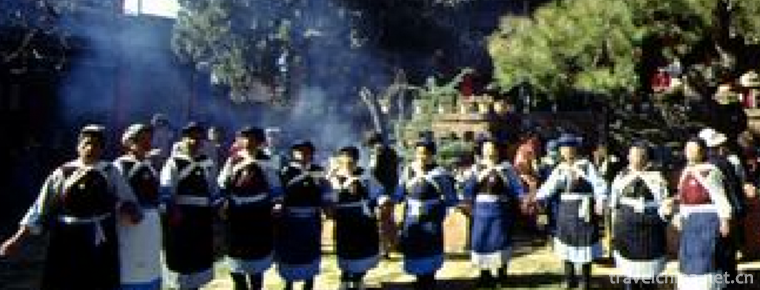
-
Go BelieveGoubuli baozi
Goubuli steamed bun is a snack made of flour, pork and other materials. It was founded in 1858 (Xianfeng period of the Qing Dynasty). .
Views: 163 Time 2018-11-14 -
The Museum of the Imperial Palace of Manchukuo
The Museum of the Imperial Palace of “Manchukuo†is located in Guangfubei Road, Kuancheng District, Changchun City. It is a Palace Ruins Museum built on the site of the Puppet Manchu Palac.
Views: 230 Time 2018-12-05 -
nanling national forest park
Nanling National Forest Park is the largest nature reserve in Guangdong Province and a treasure house of rare animals and plants. The park is located in the core of Nanling Mountains.
Views: 139 Time 2018-12-31 -
Jinan Baili Yellow River Scenic Area
Jinan Baili Yellow River Scenic Area is adjacent to the northern part of Jinan City. The south gate of the Scenic Area is directly connected to Jinan City's central axis - Jilu Road.
Views: 78 Time 2019-01-20 -
Hua gu deng Flower drum lantern
Flower drum lantern, a traditional dance in Bengbu City, Fengtai County and Yingshang County, Anhui Province, is one of the national intangible cultural heritage..
Views: 233 Time 2019-05-04 -
Firing Techniques of Liling Unglazed Colorful Porcelain
The firing technology of Liling Unglazed Five-color Porcelain, the local traditional firing technology of Liling Unglazed Five-color Porcelain in Hunan Province, is one of the national intangible cult.
Views: 166 Time 2019-05-13 -
Legend of Mencius Mother and Godson
Legend of Meng Mu and Godson, Zoucheng local traditional folk literature, Shandong Province, one of the national intangible cultural heritage..
Views: 160 Time 2019-06-04 -
Miao painting
Miao painting, as one of the representatives of Miao culture in Western Hunan, has the characteristics of Miao nationality and is mainly popular in the Miao area of Western Hunan. Miao painting origin.
Views: 126 Time 2019-06-05 -
Yao Costume
Yao people used to call themselves "Guoshan Yao", "Hongtou Yao", "Dabanyao", "Pingtouyao", "Blue Indigo Yao", "Shayao" and "Baitou Yao&.
Views: 294 Time 2019-07-11 -
The Custom of Collecting Ginseng in Changbai Mountain
The custom of collecting ginseng in Changbai Mountain has a long history. As early as the middle of the 3rd century, ginseng has been excavated. In order to survive and find, excavate and preserve gin.
Views: 153 Time 2019-07-25 -
Beijing Police College
Beijing Police College is a full-time general undergraduate college approved by the Ministry of Education, sponsored by the Beijing Municipal People's Government, administered by the Beijing Public Se.
Views: 114 Time 2019-09-06 -
China Agricultural University
China Agricultural University (China Agricultural University), referred to as "China Agricultural University", is located in Beijing City By Ministry of Education of the People's Republic of.
Views: 184 Time 2019-12-21
